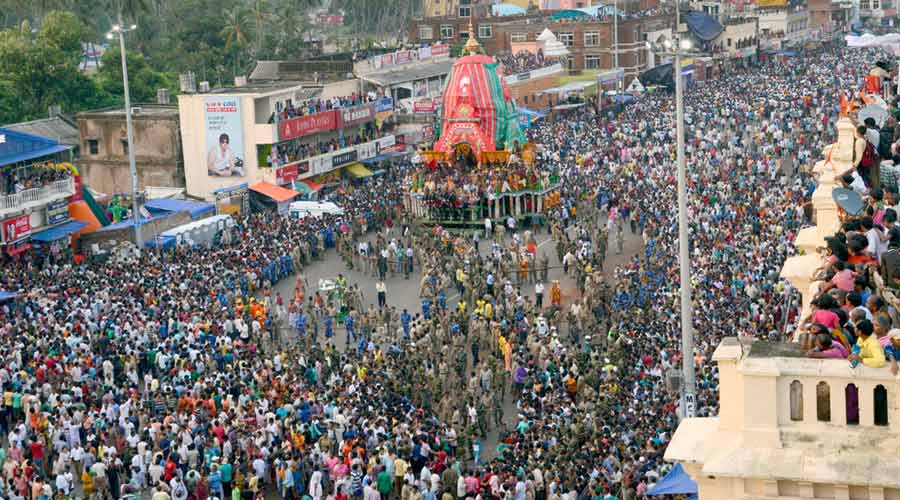After a gap of two years, thousands of devotees on Tuesday witnessed the bathing rituals of the deities of Lord Balabhadra, Devi Subhadra, Lord Jagannath and Lord Sudarshan.
The rituals are conducted on the full moon day of Jyestha' (mid May-mid June).
Over two lakh devotees have already assembled in the pilgrim town to witness the bathing rituals, an official of the Shree Jagannath Temple Administration said.
On this occasion, the deities are brought out from the garbagriha' (sanctum sanctorum) of the Jagannath Temple at Puri in a ceremonial procession and taken to the Snan Mandap' (bathing platform) where they are bathed.
Snan Jatra' was conducted without public participation in the last two years due to COVID-19 pandemic.
According to tradition, the deities were brought to the Snan Mandap', early in the morning and the Pahandi' concluded at around 6 am.
Later, a group of servitors poured 108 pitchers of purified water, drawn from the Suna Kua' (golden well) in the temple premises, on the four deities.
After fetching water from the Suna Kua', the servitors add herbal and aromatic essence to it before performing Jalabhishek' or water ritual.
All the pots are purified using turmeric, sandalwood and flowers.
The holy water is drawn from the Suna Kua' once a year.
Devotees believe that a glimpse of the deities on this day will rid them of all sins. Some even observe this festival as the birthday of Lord Jagannath.
After the bathing rituals, the deities are adorned with Hati Bhesa' (elephant headgear, representing a form of Lord Ganesha).
The devotees are then allowed darshan' of the deities as they appear for Sahana Mela' on the bathing altar.
After the ritualistic bath, the deities are traditionally believed to suffer from fever and are therefore kept in a sick room.
The temple doors remain closed for 14-days and this period is known as Anasara'. The deities appear again a day before the annual Ratha Jatra, falling on July 1 this year.










